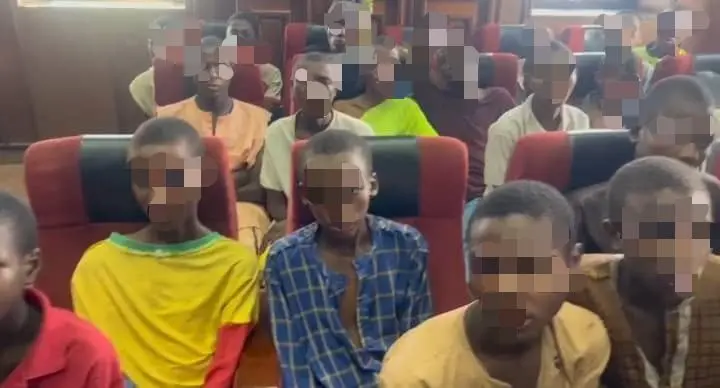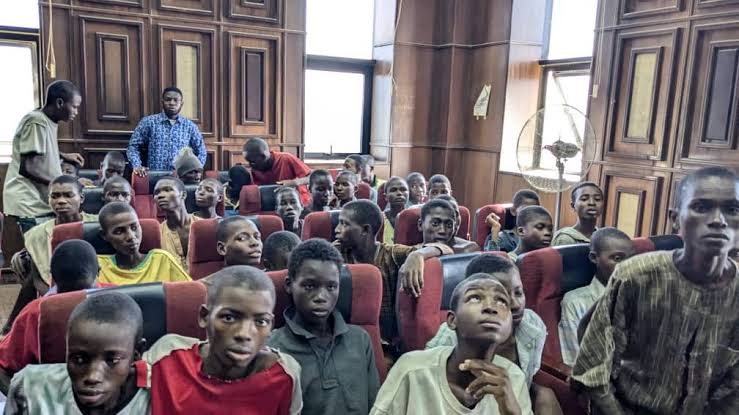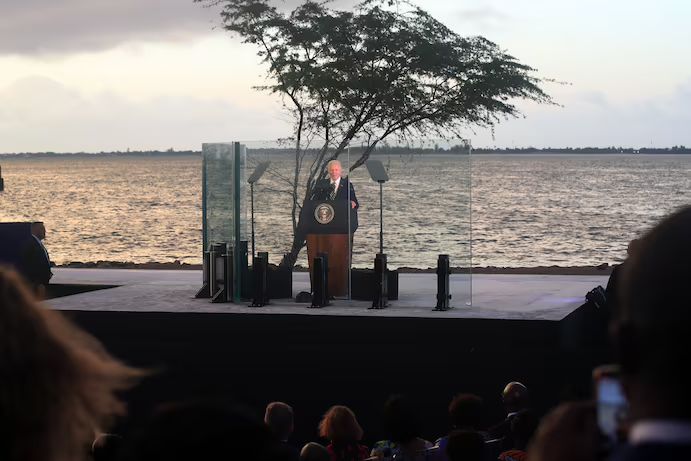#Endbadgovernance Protesters Collapse In Court

A wave of public outrage has swept through Nigeria after 76 people, including 32 minors, were brought before Justice Obiora Egwuatu at the Abuja division of the Federal High Court for their alleged participation in the August #EndBadGovernance protests.
Among the defendants, who had been detained for three months following their arrests in the Federal Capital Territory (Abuja) and states such as Kaduna, Gombe, Jos, Katsina, and Kano, 32 were identified as minors, aged between 14 and 17.
As the arraignment proceedings commenced, the minors, visibly unkempt and malnourished, looked unwell and struggled to maintain their composure.
In a shocking turn of events, four of the children suddenly collapsed in the courtroom, forcing Justice Egwuatu to suspend the session until order was restored.
The minors, writhing in pain and making screeching sounds, were hurriedly carried out of the courtroom by lawyers and prison officials, unable to stand on their feet.
As the dramatic turn of events unfolded, the prosecution counsel, Audu Garba, requested that the court strike out the names of the sick defendants and discharge them until they recover and can be brought back to answer to their charges.
However, the defense counsel, Marshall Abubakar, countered by asking for the defendants to be discharged and acquitted, arguing that the minors were sick and malnourished, having not been fed for three days.
The prosecution, however, objected to the defense counsel’s submission, insisting that the defendants had been well-fed and cared for in police custody.
The court, accepting the prosecution’s submission, discharged the four sick defendants, Umar Yunusa, Usman Suraju, Musa Isiyaku, and Abdul Ganiu, pending their recovery.
However, the court refused to acquit them, ordering that the 18-year-olds and above among the defendants be remanded in the Kuje Custodial Centre, while the minors be remanded in the Borstal Centre in Gwagwalada, until their bail terms are met.
The arraignment of the 76 defendants, including the minors, has been met with widespread condemnation by civil society groups and rights activists, who have decried the heavy-handed approach of the police and government in dealing with the protesters.
The incident has reignited the debate over the right to peaceful protest in Nigeria, as many have questioned the legality of detaining the protesters for so long without trial.
It has also brought into sharp focus the plight of minors who find themselves caught up in the criminal justice system, raising questions about the adequacy of the country’s juvenile justice system.
The case has once again highlighted the ongoing tensions between the Nigerian government and its citizens, particularly in the context of protests against economic hardship and perceived bad governance.
It also underscores the critical importance of ensuring that the rights of detainees, especially minors, are protected and that they are treated with dignity and respect, regardless of the allegations against them.
As the country continues to grapple with these complex issues, it is essential that all stakeholders, from government officials to civil society organizations, work together to find solutions that prioritize justice, fairness, and the protection of human rights.
Meanwhile, the plight of the four sick minors has drawn renewed attention to the conditions of detention facilities in Nigeria, which are often overcrowded and lack basic amenities like adequate food, water, and medical care.
The case of the minors collapsing in the courtroom is just one example of the many harrowing stories of neglect and deprivation that detainees face in Nigerian prisons.
The episode has served as a painful reminder of the need for the government to prioritize reforms in the justice system and take concrete steps to improve the conditions in detention facilities, ensuring that detainees are treated humanely and with dignity.





